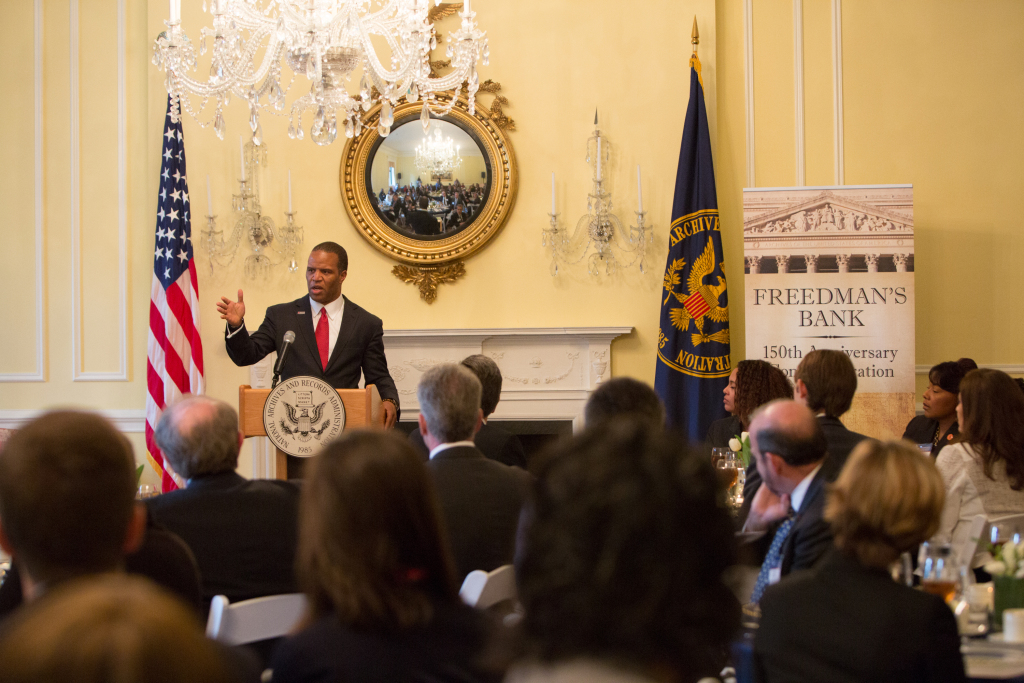160 years ago, America made a promise.
On March 3, 1865, in the final days of the Civil War, President Abraham Lincoln and Congress established the Freedman’s Savings Bank—a radical idea at the time. The vision was simple but powerful: economic freedom must accompany personal freedom.
For the first time in American history, formerly enslaved men and women had a financial institution created to help them build wealth, own property, and take their rightful place in the economy. It was a recognition that freedom meant more than just being free—it meant having the opportunity to thrive.
At its height, the Freedman’s Bank had 70,000 depositors and what would be $57 million in today’s dollars saved. It was a symbol of what was possible.
But just as quickly as it began, forces moved against it. Political pressure, corruption, and a system not designed for Black success led to its collapse in 1874—just nine years after it opened. The dream of financial empowerment for millions of Black families was shattered, and the scars of that failure have echoed for generations.
But the story didn’t end there.
Restoring the Legacy—The Freedman’s Bank Building
In 2016, I had the honor of leading the effort to ensure that the Freedman’s Bank—and everything it represented—would never be forgotten.
With the support of Operation HOPE, we worked with then-U.S. Treasury Jack Lew to rename the Treasury Annex Building the Freedman’s Bank Building.
That moment was historic—not just for me, but for America. It was the first time in U.S. history that a building on the White House campus was renamed to honor financial empowerment for all people.
To this day, I am the only private citizen, and Operation HOPE is the only nonprofit, to ever receive such an honor.
But let’s be clear: this was never just about a building.
It was about finishing the work that the Freedman’s Bank started.
160 Years Later—The Work is Not Done
While we have made progress, the same issues that led to the Freedman’s Bank collapse still exist today:
- The racial wealth gap persists. Black families still hold significantly less wealth than white families—not because of a lack of ambition, but because of systemic barriers to economic mobility.
- Millions of Americans remain unbanked. 1 in 6 people in this country still don’t have access to traditional banking and must rely on predatory lenders just to make ends meet.
- Financial literacy is still not a universal right. Too many people are still learning about money the hard way—through trial and error—rather than being taught how to build, protect, and grow wealth.
These are not new problems. They are simply unfinished business.
And that is why Operation HOPE exists.

Keeping the Promise Alive
The Freedman’s Bank was never just about deposits. It was about dignity. It was about ensuring that financial empowerment was not just for some—but for all.
That’s the work we continue today.
Through financial literacy programs, credit coaching, small business support, and wealth-building initiatives, Operation HOPE is committed to making sure the promise of the Freedman’s Bank does not remain history—it becomes reality.
So, here’s my challenge to you: If you believe financial literacy should be a universal right, not a privilege—join us. If you want to see more people owning, building, and thriving—support this work. If you believe we can make economic freedom a reality for all—help make it happen.
160 years ago, a promise was made.
Today, we make sure it is kept.
Let’s finish what was started.
Join the Financial Literacy for All Movement and Operation HOPE to advance the unfinished work of the Freedman’s Bank through our programming and your support as a volunteer or donor. Visit www.operationhope.org and www.fl4a.org to learn more.


